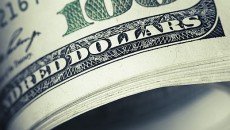U.S. Loses Its AAA Credit Rating For The First Time In Nation’s History
Credit rating agency Standard & Poor’s downgraded U.S. long-term sovereign debt from AAA to AA+ for the first time in America’s history of holding the AAA title (since 1917). In past weeks the credit rating agency expressed dissatisfaction of the U.S. government’s handling of the nation’s budget deficit and its steps toward creating a deficit reduction plan. S&P officials and the Treasury Department exchanged views on how to deal with the country’s looming debt problems through numerous phone calls and face-to-face meetings in past months. Standard & Poor’s maintains its actions were justifiable in that the agency did not see the type of reduced spending measures from Washington that would be deserving of maintaining AAA standing. The agency had stated it wanted the U.S. government to pursue measures that would entail roughly $4 trillion in spending cuts over the next 10 years. As it stands, the July 31st deal between Democrats and Republicans on a debt plan cuts government spending by $2.1 trillion over the same time period. Markets across the globe have been negatively affected by the downgrade of U.S. credit as investors flock to safer investments and seek shelter from a future potential disruption of the world financial system.
The price of gold surpassed $1,700/ounce as investors became more risk averse. The dollar rose to a four-month high against the Australian dollar and also made gains against the euro; investors saw safety in U.S. treasuries as stocks fell due to the U.S. credit downgrade announcement (the U.S. Treasury continues to be viewed as a safe haven investment during a time of uncertainty). The dollar also made gains against the Canadian dollar, mostly due to the drop in the price of oil (a major Canadian export). The Swiss franc continues to appreciate at record levels against the dollar and the euro. With the help of European debt contagion along with the downgrade of U.S. credit, the Swiss franc has become so overvalued that the Swiss National Bank has commenced discussions of pursuing monetary easing measures by seeking to reduce interest rates to “as close to zero as possible.” Swiss exports account for more than half of the nation’s aggregate growth, and having a relatively strong currency makes it difficult to for Swiss exporters to compete with other exporting nations holding weaker currencies.
-Shaun Hoyes
Article submitted by Shaun Hoyes of the Capital Markets Lab (CML). To learn more about the Capital Markets Lab (CML) please visit https://business.fiu.edu/capital-markets-lab/.




